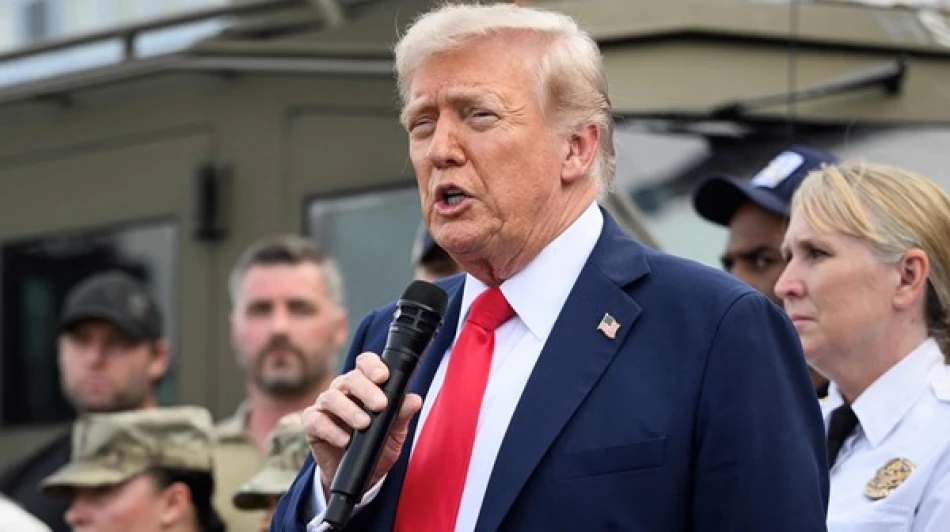
Former President Trump Visits Local Law Enforcement and National Guard Units
Trump's Military Deployment in Washington Signals Broader Federal Power Grab
President Donald Trump visited hundreds of National Guard troops and police officers deployed across Washington D.C. on Thursday, declaring they will remain "for some time" as part of his sweeping crime-fighting initiative. The move represents a significant federal intervention in local law enforcement, despite official data showing violent crime rates have actually declined in the capital.
A Show of Force Amid Questionable Justification
Trump ordered the deployment of 800 National Guard members and additional police forces to Washington last week, positioning them at high-profile locations including the National Mall and Nationals Park baseball stadium. Speaking at a police facility in the Anacostia neighborhood, Trump promised to "make it safe, then we'll move to other places, but we're going to be here for a while. We want to make this absolutely perfect."
The president was surrounded by personnel from various local and federal security agencies during his visit, where he distributed pizza and hamburgers instead of his initially proposed patrol alongside the forces.
Data Contradicts Crime Crisis Narrative
The deployment comes despite Washington D.C. police data showing a significant decrease in violent crime between 2023 and 2024. This statistical reality undermines Republican politicians' persistent characterizations of the capital as plagued by rampant crime, homelessness, and financial mismanagement.
The disconnect between official crime statistics and the administration's justification for military deployment raises questions about the true motivations behind this unprecedented peacetime use of federal forces in the nation's capital.
Federal Overreach or Necessary Intervention?
Beyond deploying troops to city streets, Trump has attempted to seize complete control of Washington's local police department, at one point trying to sideline its existing leadership structure. This represents a dramatic shift in federal-local law enforcement relations and sets a concerning precedent for presidential power over municipal governance.
The Washington deployment follows Trump's decision to send National Guard and Marine forces to Los Angeles to quell unrest that erupted following immigration enforcement raids, suggesting a pattern of using military assets for domestic law enforcement purposes.
Political Theater Meets Practical Concerns
Trump's visit included an unusual moment where he promised to redesign the city's parks, claiming expertise in grass maintenance due to his golf course ownership. "I know about grass more than any other human being," he declared, highlighting the theatrical nature of his engagement with serious governance issues.
The deployment has faced local resistance, with Vice President J.D. Vance receiving hostile reception from residents during his own visit to the deployed forces, indicating significant community opposition to the federal intervention.
Implications for Presidential Power
This deployment establishes a troubling precedent for future administrations, normalizing military presence in civilian areas without clear justification based on actual crime data. The move effectively transforms Washington D.C. into a testing ground for expanded executive authority over local law enforcement, with potential implications for federal-state relations nationwide.
As Trump promises to extend similar deployments to "other places," cities across America may soon face the prospect of federal military intervention regardless of their actual public safety needs or local government preferences.
Most Viewed News

 Layla Al Mansoori
Layla Al Mansoori






